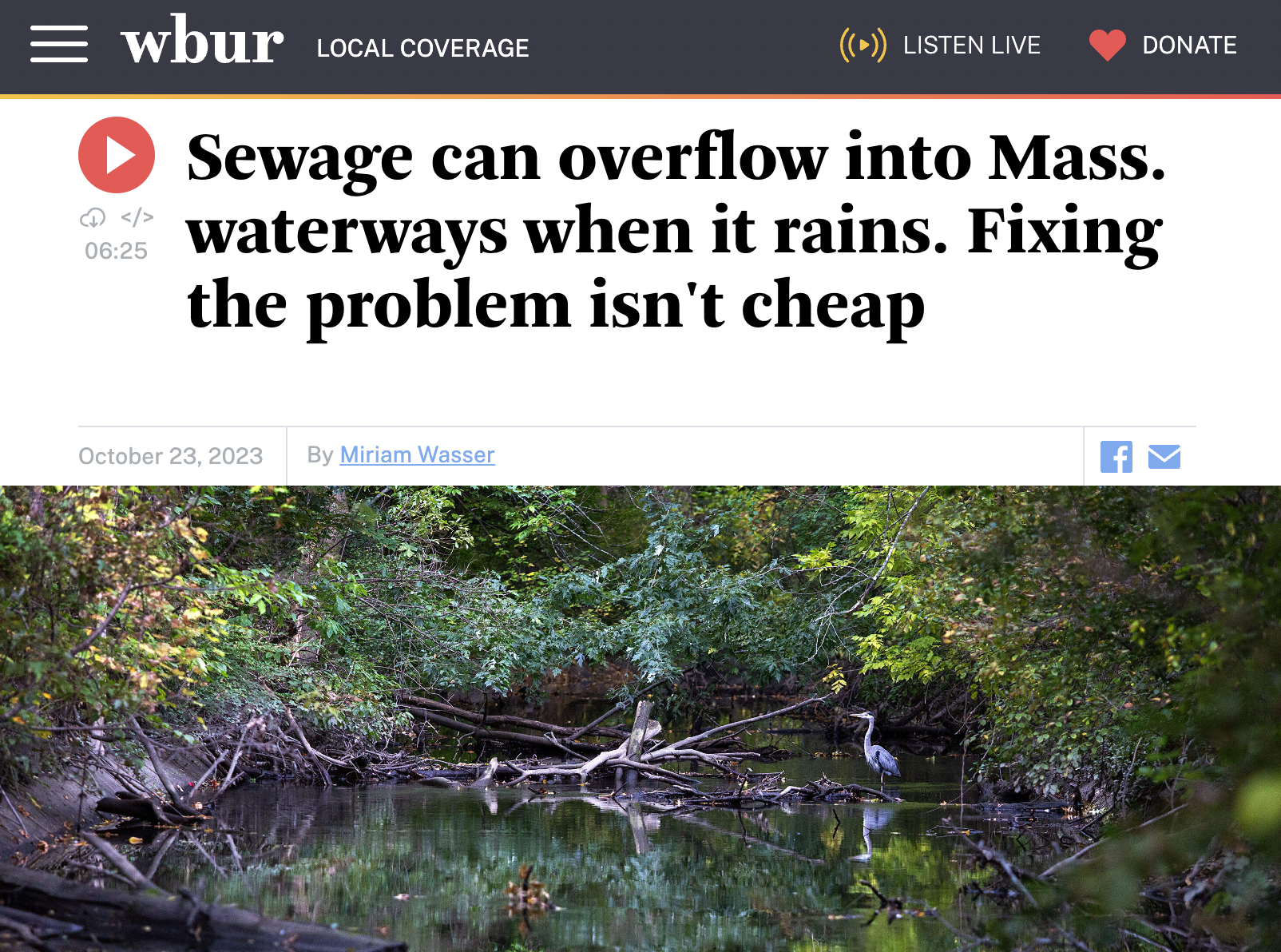Ending Sewer Overflows - Read More in WBUR, WGBH, WBZ
This summer, intense rainfall led to record-breaking amounts of sewage being released into our rivers, threatening both public health and ecosystem health. In 2023 alone, 5.3 billion gallons of sewage flowed in Massachusetts waterways––seven times the volume of Walden Pond.
The impacts are not felt equally––research shows environmental justice neighborhoods are more likely to have sewer overflows and face adverse health impacts from unjust exposure to pollution.
This month, we hosted a briefing on what we can do to end sewer overflows with Massachusetts Rivers Alliance, Mystic River Watershed Association, and Save the Alewife Brook. Executive Director Emily Norton testified in support of a bill, HB.886, which would be a first step to protecting communities from pollution.
Read more about solutions in excellent coverage in WBUR, WGBH, and WBZ.


